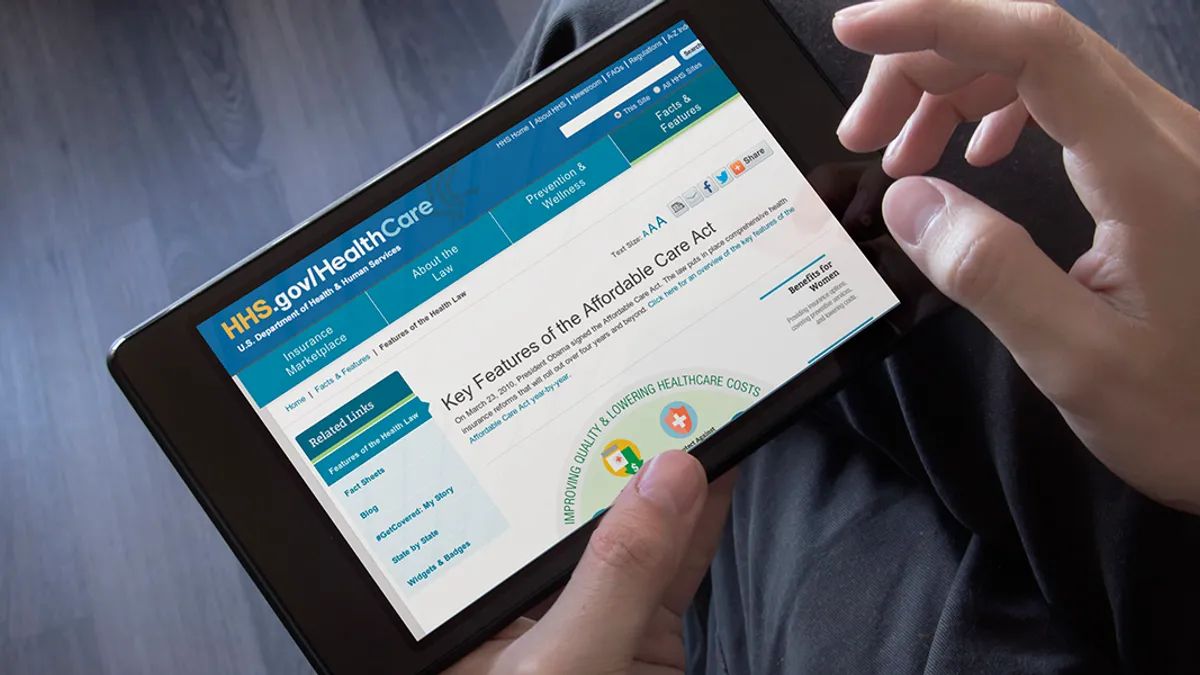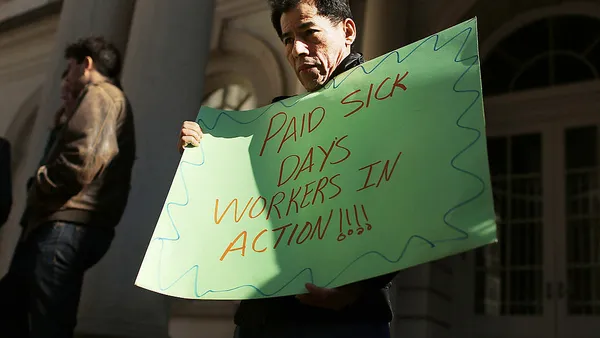Dive Brief:
- The so-called "Cadillac Tax," which takes effect in 2018, is galvanizing many employers and their unions to push for its repeal, according to an article in the New York Times. The 40% excise tax on healthcare plans has always been controversial, and opposition to it is gaining traction, the Times reports.
- At the same time, Politico reports that Hillary Clinton promises to "take a look" at the tax during her campaign run.
- Proponents say it's critical to the Affordable Care Act survival. It's fairly clear that there is going to be a lot of political maneuvering surrounding the tax.
Dive Insight:
“As we get closer to 2018, we’re starting to hear the organic resistance out there,” Representative Joe Courtney, a Connecticut Democrat who has proposed a bill to repeal the tax, told the Times. Courtney's bill has gained nearly 130 co-sponsors, including more than 100 fellow Democrats, with supporters ranging from the U.S. Chamber of Commerce to the A.F.L.-C.I.O. In New Hampshire, Representative Frank Guinta, a Republican, has a similar bill that has almost 70 co-sponsors from his side of the aisle, the Times reports.
Many employers have been taking steps like offering only high-deductible plans to their workers, Brian Marcotte, the chief executive of the National Business Group on Health, told the Times. Others are looking at less expensive plans with a much more limited network of hospitals and doctors, or are considering initiatives like on-site health clinics or programs to improve workers’ overall health as a way of lowering costs. However, employers would rather see it repealed, he said.
Today, it's unclear whether Congress can repeal the tax, says the article, adding that when the health care law was passed in 2010, many thought the provision would go away, according to Timothy Jost, a professor at Washington and Lee University School of Law. He told the Times that people thought “this will never go into effect,” but with 2018 only a few years away, “it looks like it might happen.”














